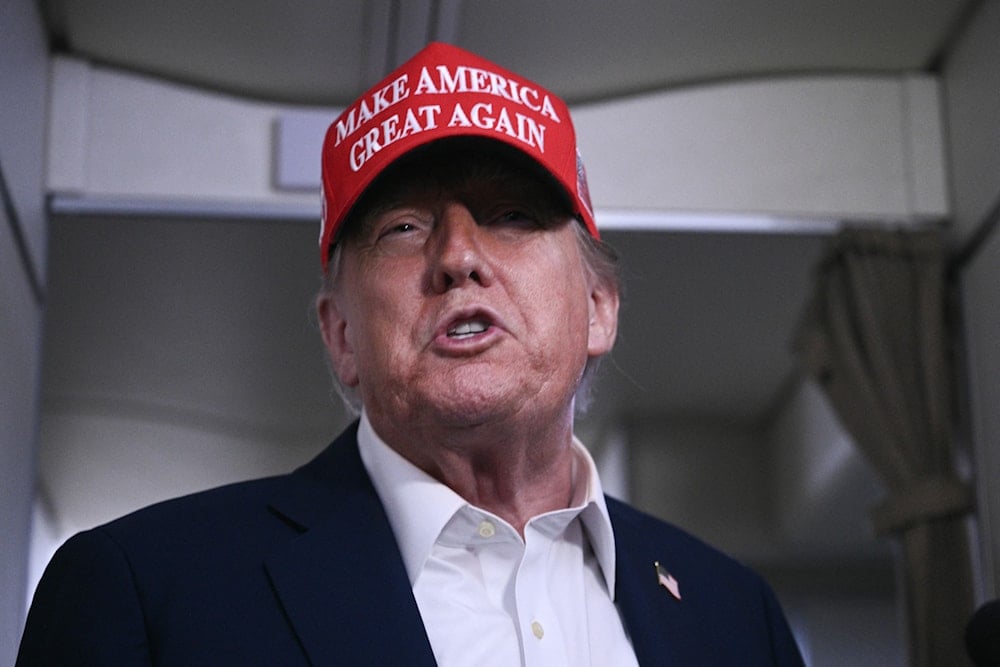Trump says to send tariff letters as July 9 deadline looms
The US president says 12 tariff letters will be sent ahead of a July 9 deadline, signaling the next phase in his 2025 trade policy targeting dozens of global economies.
-

US President Donald Trump speaks to journalists aboard Air Force One after departing Joint Base Andrews, Maryland, on his way to Bedminster, New Jersey, on July 4, 2025 (AFP)
US President Donald Trump announced on Friday that he had signed 12 tariff letters, set to be sent out next week, as his administration moves closer to implementing the next stage of its trade policy.
Speaking aboard Air Force One, Trump told reporters, “I signed some letters and they'll go out on Monday, probably 12,” noting that the names of the recipient countries will be disclosed the same day.
Steep duties set to begin on dozens of economies
The letters come just days ahead of the July 9 deadline, when steep new tariffs ranging between 10% and 70%, according to Trump, are scheduled to take effect.
The duties target dozens of countries, from Taiwan to members of the European Union, and stem from a broader April policy in which a 10% duty was imposed on imports from nearly all trading partners. The plan includes escalating rates for select countries.
However, Trump temporarily paused the hikes to allow for trade negotiations, setting July 9 as the final implementation date.
Read more: Trump threatens steep tariffs as Japan demands final trade deal: FT
Trade talks continue as deadline nears
As countries push to finalize deals to avoid the heightened tariffs, Trump explained that sending letters is a more efficient method than managing multiple negotiations.
“You know, with the UK, we did that. And it was great for both parties. With China, we did that, and I think it's very good for both parties,” he said.
US secures agreements with UK, Vietnam, and China
So far, the Trump administration has secured trade agreements with the United Kingdom and Vietnam. Additionally, Washington and Beijing reached an understanding to temporarily lower some of the high levies placed on each other’s goods.
Trump emphasized the practicality of the approach, saying it was "much easier to send a letter saying, 'Listen, we know we have a certain deficit, or in some cases a surplus, but not too many. And... this is what you have to pay, if you want to do business (with) the United States.'"

 2 Min Read
2 Min Read










